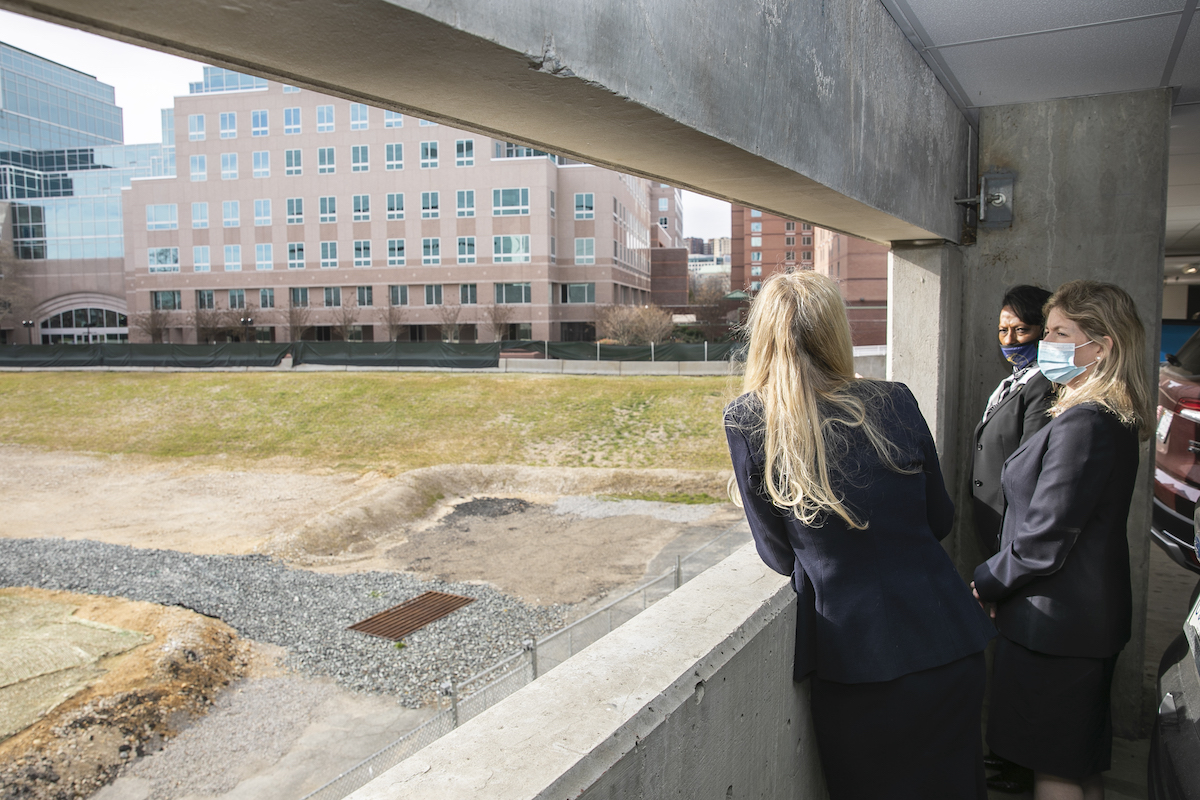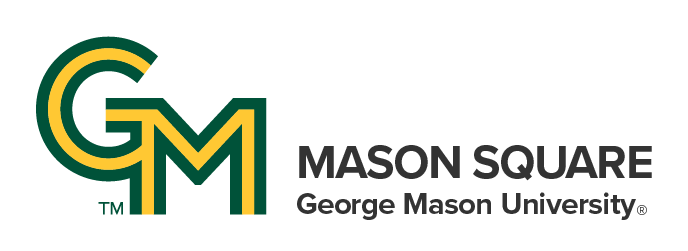
George Mason University President Gregory Washington and other school officials met on the Arlington Campus with Virginia Secretary of Labor Megan Healy on Tuesday with the aim of fostering a closer relationship between the university and the local business community.
The meeting, which followed a walking tour of the construction site that will soon be transformed into a hub for the Innovation District in Arlington and the Innovation Pilot Space in Vernon Smith Hall, focused on ways that Mason could strategically fill the growing need for tech talent in the Washington, D.C., metropolitan area.
Much of the discussion centered on ways in which Mason could help fill that gap by meeting the specific skill needs of local companies. Virginia ranks as the nation’s top net producer of tech talent, but many young local college graduates continue to move away for their first jobs because they lack the requisite number of years of experience companies are seeking.
“Mason offers so many programs to support the workforce that the [business community] just does not know about,” Washington said, “so they are not taking advantage of the programs to support their hiring needs.”

Healy, whose primary role is to work closely with the state’s labor and business communities to identify and fill vacant jobs in high-demand sectors, said it was great to meet with Mason officials to discuss hiring challenges and talent development.
“It’s important to make sure the connection between the business community and Mason is there, and we develop better partnerships,” Healy said.
Liza Wilson Durant, the associate provost for strategic initiatives and community engagement at Mason and director of the Northern Virginia Node of the Commonwealth Cyber Initiative (CCI), took Healy on a tour of the future home of the Institute for Digital InnovAtion (IDIA) and Mason’s School of Computing. Expected to open in 2025, the 360,000-square-foot building will house more than 1,200 faculty, students, entrepreneurs, technologists and business leaders from the public and private sectors.
Wilson Durant said she welcomed the opportunity to share the details about the innovative changes ahead for the Arlington Campus.
“It was a great opportunity to connect with the Secretary of Labor and get her perspective on what we’re doing, on our strategy for workforce development and commercialization of technologies, and ensuring that we’re meeting the commonwealth’s needs,” Wilson Durant said.
Others university and community leaders in attendance included Dietra Trent, special advisor to President Washington; Aneesh Chopra, president of CareJourney and chair of the President’s Innovation Advisory Council; Marc Austin, executive director of Mason’s Continuing and Professional Education; Lauren Bird, Mason’s director of University Priorities; and Brian Naumick, the vice president of Edgemoor Infrastructure and Real Estate.
The changes to the Arlington Campus are part of a $250 million transformation that will serve as a catalyst in the further development of Arlington’s Rosslyn-Ballston corridor into a dynamic and growing innovation district with a thriving high-tech ecosystem.
